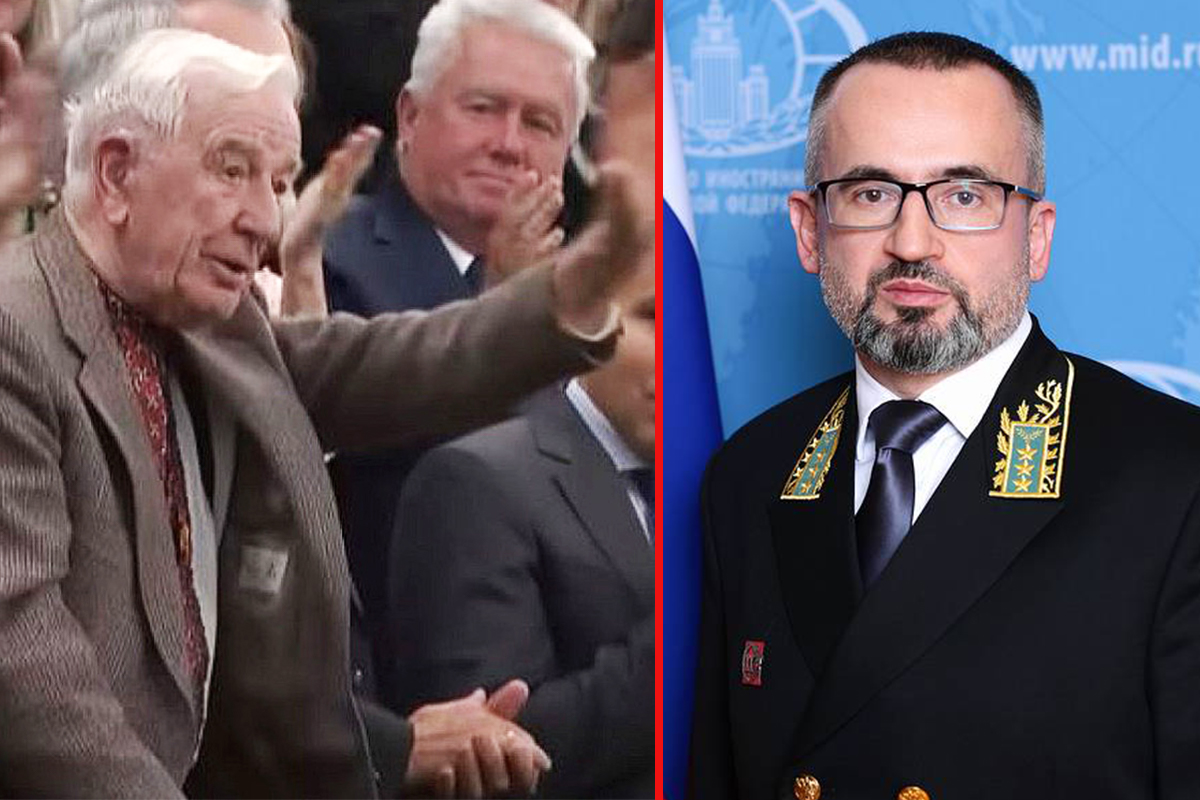After the Polish government, Russia is now exploring the possibility of extraditing Nazi war veteran Yaroslav Hunka, who was recently honoured at a parliamentary meeting in Canada. In a press statement issued on Wednesday, Russian Ambassador to Ottawa Oleg Stepanov said that Russia is ‘examining’ the story and may proceed to file an extradition request.
“Russia is considering the option to fulfil an extradition request for Yaroslav Hunka, who served in the SS Division ‘Galicia’ and was honoured in the Canadian Parliament on September 22,” said Ambassador Stepanov.
“Russia is examining the Hunka story. It is possible that a criminal case will be initiated, and a request for his extradition will subsequently be filed,” Stepanov stated in a statement published by the embassy.
ALSO READ: Russia seeks clarification from Canada for honouring Nazi fighter
Earlier, a Polish minister had announced that they would initiate extradition proceedings against Hunka. “In view of the scandalous events in the Canadian parliament, which involved honouring a member of the criminal Nazi SS Galizien formation in the presence of President Zelensky, I have taken steps toward the possible extradition of this man to Poland,” said Polish Education Minister Przemysław Czarnek.
The 98-year-old war veteran who served in the SS Division ‘Galicia’ received a standing ovation in the Canadian House of Commons on September 22, leading to an international controversy.
ALSO READ: Nazi fighter commemorated as war hero in Canadian parliament
Hunka was presented as a “war hero” by the Speaker of Canada’s House of Commons, Anthony Rota, during a visit by Ukrainian President Volodymyr Zelensky.
Rota recognized Yaroslav Hunka as a “Ukrainian hero and a Canadian hero” on Friday, adding that “we thank him for his service.”
Hunka received two standing ovations from Canadian lawmakers and Ukrainian President Volodymyr Zelenskyy, who delivered remarks in parliament that day. However, it soon surfaced that Hunka had fought for the Waffen-SS Galicia Division, a Nazi military unit, during World War II.
Rota subsequently resigned and apologised, stating that he had not been fully aware of Hunka’s wartime history. Canadian Prime Minister Justin Trudeau, who had also participated in the ovation, expressed that the incident was ‘upsetting and embarrassing.’









